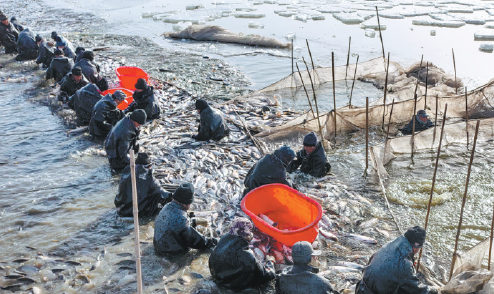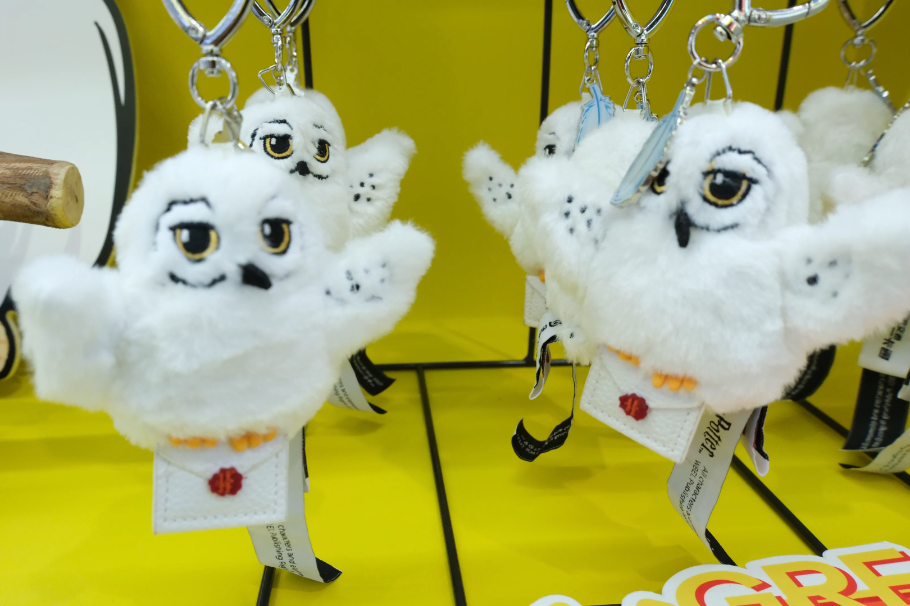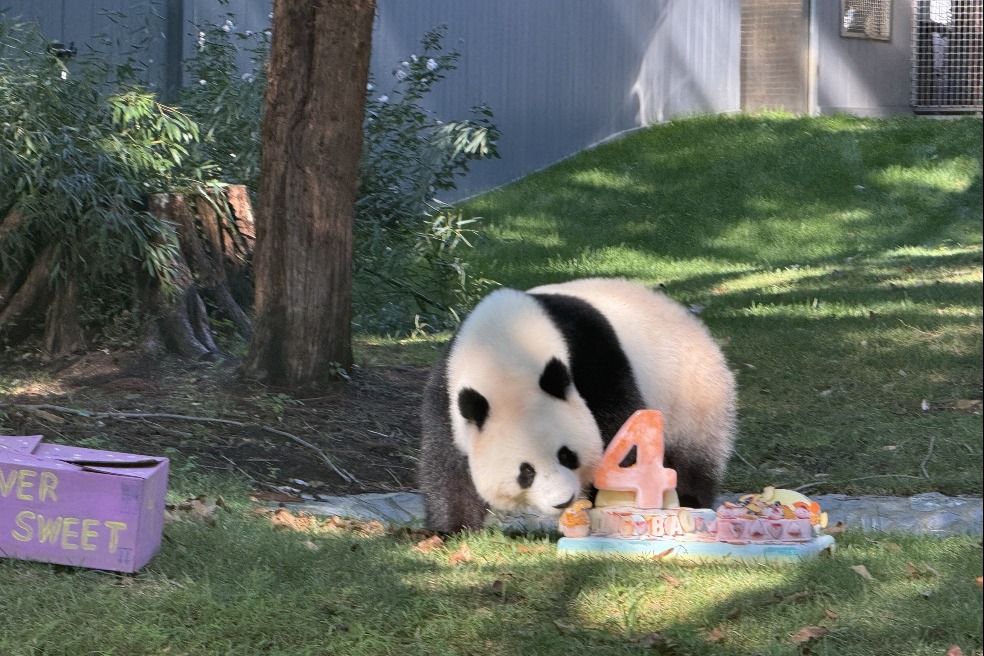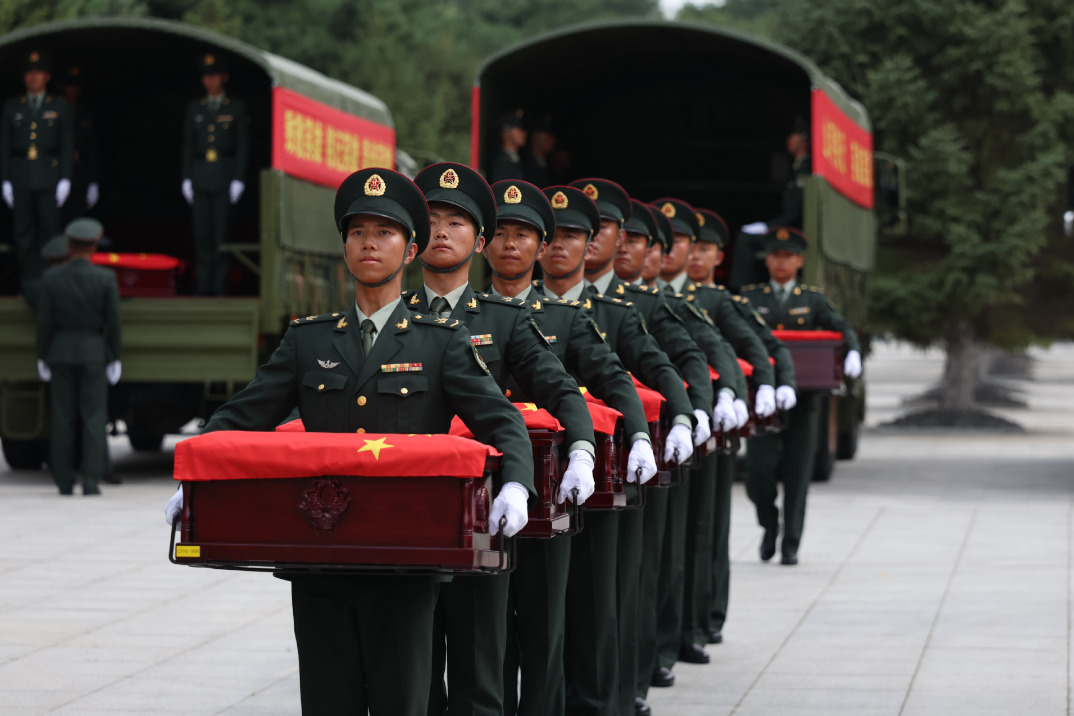Recycled tailwater leads to better breeding in Hebei

SHIJIAZHUANG — Tailwater is not wastewater, as a major aquaculture city in Hebei province has discovered.
"Since the middle of January, we've harvested up to 2,500 kilograms of prawns every day. Recycled water played an important role in that," said Yin Xiangguang, head of an aquaculture farm in Tangshan's Laoting county, which is promoting the greening of the industry.
At the entrance to the aquaculture farm, a water wheel-like roller spins without stopping. Tailwater — water below a hydraulic structure such as a dam or spillway — flows into the roller and through a microfilter, where large particles of bait, fish and prawn feces are filtered out.
The system then removes nitrogen and treats the water with ultraviolet light to purify it. The treated water is heated and returned to the prawn ponds for reuse, while a small amount of tailwater is discharged into the sea after special treatment.
Yin's aquaculture farm breeds about 10 varieties of marine species, including prawns and flounders. In 2020, it built a water recycling plant, which now recycles over 80 percent of the water the farm uses.
The farm has reaped huge benefits from this investment in water recycling.
"In the past, we pumped in water from the sea," Yin said. "This triggered stress reactions in the prawns and led to losses."
By recycling though, the water's temperature and quality remain constant, creating a stable living environment for the fish and prawns. Nowadays, the farm only needs to be resupplied with a small amount of fresh seawater.
Tangshan city has a 250-kilometer coastline, and some 62,000 hectares are used for seawater aquaculture. The city produces 247,000 metric tons of fish and shrimp a year and has plans to speed up the green, low-carbon transformation of its aquaculture industry.
The Tangshan Caofeidian Huitong Aquatic Science and Technology has set up dozens of sedimentation tanks outside its facilities to treat tailwater.
The five-stage sedimentation tanks purify the water for further use, said office director Tian Zhongxi.
Many aquaculture farmers are already experiencing the benefits of eco-farming, according to Su Wenqing, an official in charge of promoting aquatic technology in Tangshan.
Xinhua

Today's Top News
- China pays its respects to 30 war martyrs
- Nation honors fallen soldiers returned from South Korea
- Equal consultation with mutual respect right way to settle TikTok issue
- Aid program must return to its roots
- UN Security Council slams deadly strikes in Qatar
- Trump to meet Qatari PM in New York






























